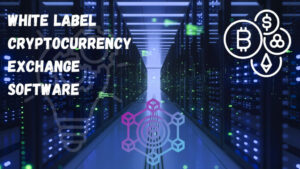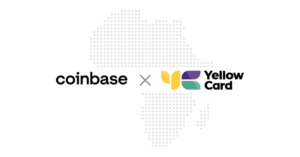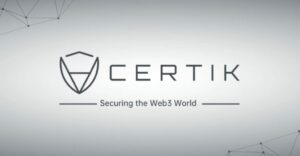- DN-404 tokens offer a pragmatic solution to Ethereum’s scalability challenges, emphasizing a dual-contract framework to ensure efficient tokenization.
- DN-404, which stands for “Divisible NFT-404,” builds on the work of the ERC-20 and ERC-721 standards to offer a smooth mix of fungible and non-fungible token features.
- In addition to its technical prowess, the emergence of DN-404 tokens underscores the Ethereum community’s collaborative spirit.
Developers quickly addressed the high Ethereum network fees caused by the unprecedented popularity of ERC-404 tokens by introducing a new token standard called DN-404 to overcome its limitations. ERC-404 tokens, an experimental standard introduced just last week, have propelled trading volumes into the millions since their inception in early February.
However, this surge in activity has come at a cost, as Ethereum network fees, colloquially known as “gas,” have skyrocketed to levels not seen in eight months. While ERC-404 tokens promised innovation, their implementation inadvertently led to congestion on the Ethereum blockchain, driving transaction fees to alarming heights.
In response, a consortium of Ethereum application developers has pioneered the DN-404 token, which is designed to offer a more efficient alternative while maintaining compatibility with existing token standards.
DN-404 Tokens Address Ethereum Network Congestion Resulting from the ERC-404 Surge
DN-404, which stands for “Divisible NFT-404,” builds on the work of the ERC-20 and ERC-721 standards to offer a smooth mix of fungible and non-fungible token features. Unlike its predecessor, DN-404 boasts a robust structure comprising two contracts, meticulously engineered to mitigate the congestion issues plaguing the Ethereum network.
The genesis of DN-404 stemmed from the adverse effects witnessed following the proliferation of ERC-404 tokens. Transactional fees surged to unprecedented levels, with some transactions reportedly costing as much as $840, a stark contrast to the typical $50 expenditure. The fee surge, partly due to the adoption of ERC-404 contracts, prompted developers to search for an alternative solution.
Gas fees on the Ethereum network are pivotal in prioritizing transactions, with validators favouring those offering higher fees. However, the surge in gas fees, peaking at 360 gwei(a unit of ether) over the weekend, has raised concerns about the long-term viability of popular projects reliant on the Ethereum ecosystem.
Also, Read Ethereum ERC404 Redefines Token Standards for a New Era.
While ERC-404 tokens garnered rapid adoption in the cryptocurrency market, they remain an unofficial Ethereum token standard, marked by their experimental nature. Despite criticisms surrounding their nomenclature, ERC-404 developers defend their approach, citing its effectiveness in garnering attention and fostering community engagement.

In contrast, DN-404 tokens offer a pragmatic solution to Ethereum’s scalability challenges, emphasizing a dual-contract framework to ensure efficient tokenization and NFT management. Although neither DN-404 nor ERC-404 have received official recognition from the Ethereum Foundation, both standards continue to operate within the network’s framework.
ERC-404 developers continue to formalize their token standard through an Ethereum Improvement Proposal (EIP), a rigorous process that aims to introduce new features to the Ethereum ecosystem. While acknowledging the complexities involved in this endeavour, developers remain optimistic about the prospects of establishing a consensus-driven standard.
As the Ethereum community navigates through the complexities of token standards, transparency, collaboration, and innovation remain paramount. Developers, including those behind DN-404 and ERC-404, continue to solicit feedback and contributions from the broader developer community to foster adoption and support ecosystem growth.
Beyond its immediate implications for network congestion and transaction fees, the introduction of DN-404 tokens heralds a new era of innovation within the Ethereum ecosystem. The need for flexible and efficient token standards becomes increasingly apparent as developers grapple with the scalability challenges posed by surging demand for decentralized applications (dApps) and non-fungible tokens (NFTs).
One notable advantage of the DN-404 framework is its adaptability to various use cases within the burgeoning decentralized finance (DeFi) landscape. By leveraging the interoperability of ERC-20 and ERC-721 standards, DN-404 tokens offer developers a versatile toolkit for tokenization, enabling the creation of dynamic financial instruments and novel asset classes.
The dual-contract architecture of DN-404 tokens promises to enhance the security and stability of tokenized assets. By segregating fungible and non-fungible token functionalities into distinct contracts, developers can mitigate the risk of potential vulnerabilities and exploits, safeguarding user funds and maintaining the integrity of decentralized applications.
In addition to its technical prowess, the emergence of DN-404 tokens underscores the Ethereum community’s collaborative spirit. As developers rally behind this new standard, sharing insights and expertise, the collective effort towards innovation and improvement is a testament to the decentralized ethos underpinning the Ethereum ecosystem.
DN-404 tokens will catalyze a wave of experimentation and creativity across various sectors, from digital art and gaming to supply chain management and identity verification. As developers explore the boundless possibilities afforded by tokenization, DN-404 stands poised to facilitate the seamless exchange of value and the tokenization of real-world assets on a global scale.
In conclusion, the emergence of DN-404 tokens signifies a crucial step towards addressing Ethereum’s scalability challenges, offering a compelling alternative to the ERC-404 standard. With a concerted effort towards standardization and collaboration, the Ethereum ecosystem is poised to embrace innovation and drive continued growth in the decentralized finance landscape.
Also, Read The Internal Revenue Services forces Kraken Exchange to surrender user information.
- SEO Powered Content & PR Distribution. Get Amplified Today.
- PlatoData.Network Vertical Generative Ai. Empower Yourself. Access Here.
- PlatoAiStream. Web3 Intelligence. Knowledge Amplified. Access Here.
- PlatoESG. Carbon, CleanTech, Energy, Environment, Solar, Waste Management. Access Here.
- PlatoHealth. Biotech and Clinical Trials Intelligence. Access Here.
- Source: https://web3africa.news/2024/02/23/news/dn-404-tokens-ethereum-network/
- :has
- :is
- :not
- 1
- 360
- 7
- a
- About
- across
- activity
- addition
- address
- addressed
- addressing
- Adoption
- ADvantage
- adverse
- afforded
- aims
- alternative
- Although
- an
- and
- apparent
- Application
- applications
- Applications (DApps)
- approach
- architecture
- ARE
- Art
- AS
- asset
- Assets
- At
- attention
- becomes
- behind
- blockchain
- boasts
- both
- boundless
- broader
- builds
- burgeoning
- by
- called
- CAN
- cases
- catalyze
- caused
- chain
- challenges
- classes
- collaboration
- collaborative
- Collective
- come
- community
- compatibility
- compelling
- complexities
- comprising
- Concerns
- concerted
- conclusion
- congestion
- consortium
- continue
- continued
- contracts
- contrast
- contributions
- Cost
- creation
- creativity
- criticisms
- crucial
- cryptocurrency
- cryptocurrency market
- DApps
- decentralized
- Decentralized Applications
- Decentralized Finance
- decentralized finance (DeFi)
- DeFi
- Demand
- Design
- designed
- Despite
- Developer
- developers
- digital
- Digital Art
- distinct
- document
- drive
- driving
- due
- dynamic
- Early
- ecosystem
- effectiveness
- effects
- efficient
- effort
- eight
- EIP
- embrace
- emergence
- emphasizing
- enabling
- engagement
- engineered
- enhance
- ensure
- Era
- ERC-20
- ERC-721
- establishing
- Ether
- ethereum
- Ethereum blockchain
- Ethereum ecosystem
- ethereum foundation
- ethereum network
- Ethereum's
- Ethos
- exchange
- existing
- experimental
- expertise
- exploits
- explore
- facilitate
- Features
- February
- fee
- feedback
- Fees
- finance
- financial
- Financial Instruments
- flexible
- following
- For
- Forces
- Foster
- fostering
- Foundation
- Framework
- from
- functionalities
- funds
- Fungible
- gaming
- garnered
- garnering
- GAS
- gas fees
- Genesis
- Global
- global scale
- Growth
- Have
- heights
- heralds
- High
- higher
- However
- HTTPS
- Identity
- Identity Verification
- immediate
- implementation
- implications
- improve
- improvement
- in
- inadvertently
- inception
- Including
- increasingly
- information
- ingenuity
- Innovation
- insights
- instruments
- integrity
- internal
- Interoperability
- into
- introduce
- introduced
- introducing
- Introduction
- involved
- issues
- ITS
- just
- known
- Kraken
- Kraken exchange
- landscape
- Last
- Led
- levels
- leveraging
- limitations
- long-term
- Maintaining
- management
- marked
- Market
- max-width
- meticulously
- millions
- Mitigate
- mix
- months
- more
- more efficient
- much
- Nature
- navigates
- Need
- Neither
- network
- New
- New Features
- NFT
- NFTs
- non-fungible
- non-fungible token
- non-fungible tokens
- NON-FUNGIBLE TOKENS (NFTS)
- notable
- novel
- of
- offer
- offering
- official
- on
- operate
- Optimistic
- over
- Overcome
- Paramount
- pioneered
- pivotal
- plato
- Plato Data Intelligence
- PlatoData
- poised
- Popular
- popularity
- posed
- possibilities
- potential
- pragmatic
- predecessor
- prioritizing
- process
- projects
- promised
- promises
- propelled
- proposal
- prospects
- providing
- prowess
- quickly
- raised
- rally
- rapid
- real world
- received
- recognition
- remain
- reportedly
- response
- resulting
- revenue
- rigorous
- Risk
- robust
- safeguarding
- Scalability
- Scale
- seamless
- Search
- Sectors
- security
- seen
- Services
- sharing
- signifies
- since
- smooth
- solution
- some
- spirit
- Stability
- standard
- standardization
- standards
- stands
- stark
- stemmed
- Step
- structure
- supply
- supply chain
- supply chain management
- support
- surge
- Surged
- surging
- Surrounding
- Technical
- testament
- that
- The
- The Ethereum Foundation
- their
- they
- this
- those
- Through
- to
- token
- Tokenization
- tokenized
- tokenized assets
- Tokens
- toolkit
- towards
- Trading
- trading volumes
- transaction
- Transaction Fees
- transactional
- Transactions
- Transparency
- two
- typical
- typically
- underpinning
- underscores
- unit
- unlike
- unprecedented
- use
- User
- user funds
- validators
- value
- various
- Verification
- versatile
- viability
- volumes
- Vulnerabilities
- Wave
- week
- weekend
- which
- while
- will
- with
- within
- witnessed
- Work
- zephyrnet













